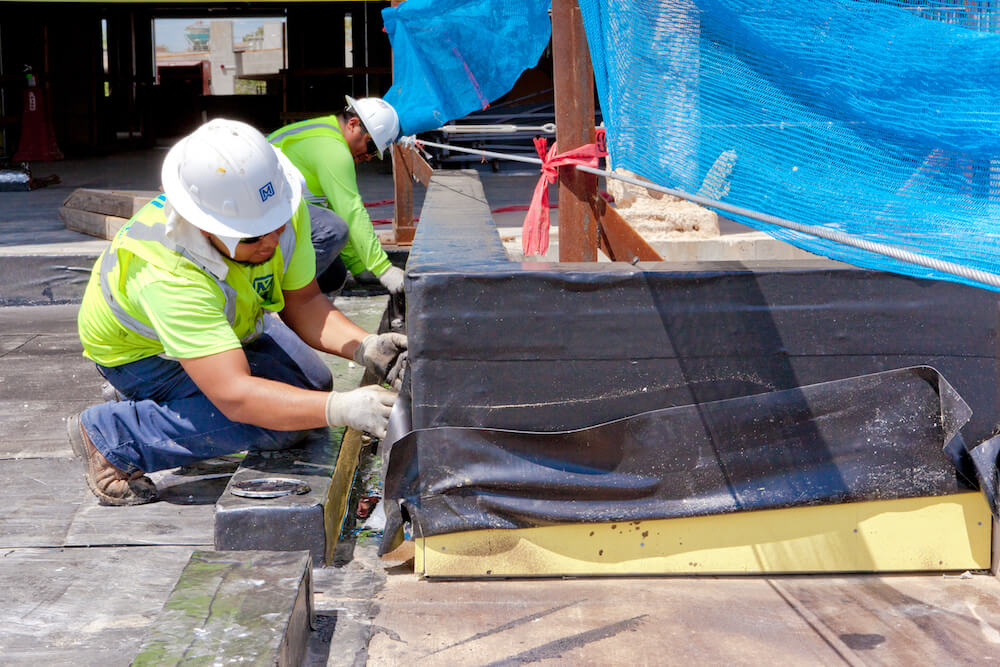A new roof is one of the biggest single-item capital expenditures for any commercial building owner. A new roof can cost anywhere from few dollars per square foot to a few hundred dollars per square foot. It is imperative that any roofer who steps onto the roof is experienced, trusted and will provide the best value for the investment. Hiring a roofing contractor should never be a leap of blind faith. To properly vet a potential contractor, these are the questions that should be answered before a final decision is made:
How Much Experience Do You Have?
Experience matters when it comes to commercial roofing. The number of years that a contractor has been in the business is a good indicator of their quality of work. New companies may come to the table with a breadth of previous experience, but it can take years to become financially solvent and to develop processes that ensure true customer satisfaction. If a company installs a roof and goes out of business the next year, warranties and maintenance contracts are put in jeopardy. Always choose a roofer that has at least a decade of proven work experience under their belt, and be sure they have operated under the same business name during that time.
It is also important to choose a roofer with experience working on buildings similar to your own. A company that mainly works with single-story, suburban retail buildings, for example, would not be the best choice to work on a high-rise with tenant access. Study the roofer’s portfolio to compare their past projects with your own.
What Is The Timeline?
A roofing company that is booked for the next 12 months is of little use if your roof is failing today. Before selecting a bid, be sure to address the contractor’s capacity to handle the work. Ask questions like:
- When can the project start?
- Will you have access to all of the extra equipment needed for the work?
- How long will the job take?
- Do you currently have enough people on staff to get the job done in the allotted time?
A bottom-line bid is not always an indication of capacity to do the work. Be sure to ask these questions to ensure your project can start and end in a timely manner.
What Is Your Safety Rating?
Safety should be just as much of a priority when choosing a roofer as budget. There cannot be enough said about keeping the workers on the roof safe from hazards and keeping the tenants and general public safe, as well.
Ask direct questions about a roofer’s safety record. They should have this data on file, and should be willing and able to present it as part of their bid presentation. The way in which a roofing contractor manages safety can be a strong indicator of how the entire project will be managed.
How Can You Ensure Quality?
Quality can and should be the deciding factor when you have several bids that come in at the same price, and the experience and safety record of the contractors all seem equal.
Quality can be determined by studying a potential contractor’s portfolio and asking for references. Most reputable firms should be able to provide references for similar projects. If given the opportunity to connect directly with those references, ask about their satisfaction levels with:
- The communication process with the contractor before, during and after construction.
- The quality of materials.
- The workmanship of the finished product.
- The work ethic of the team.
- Safety precautions during construction.
- Maintenance contracts, warranties, etc.
- Current roof performance.
A roofing project that is rife with issues can draw out the length of construction, can lead to unforeseen added expenses and a host of other issues down the line. While the price of the roof is important, the quality of the roof and the value proposition of the contractor should be given significant weight.
Commercial roofing projects can easily fall into the $100,000-plus range. When spending that kind of money, building owners and property managers must perform their due diligence. Take the time to ask questions to a roofer before hiring them. A proper vetting process is the best way to ensure satisfaction with the end result.

